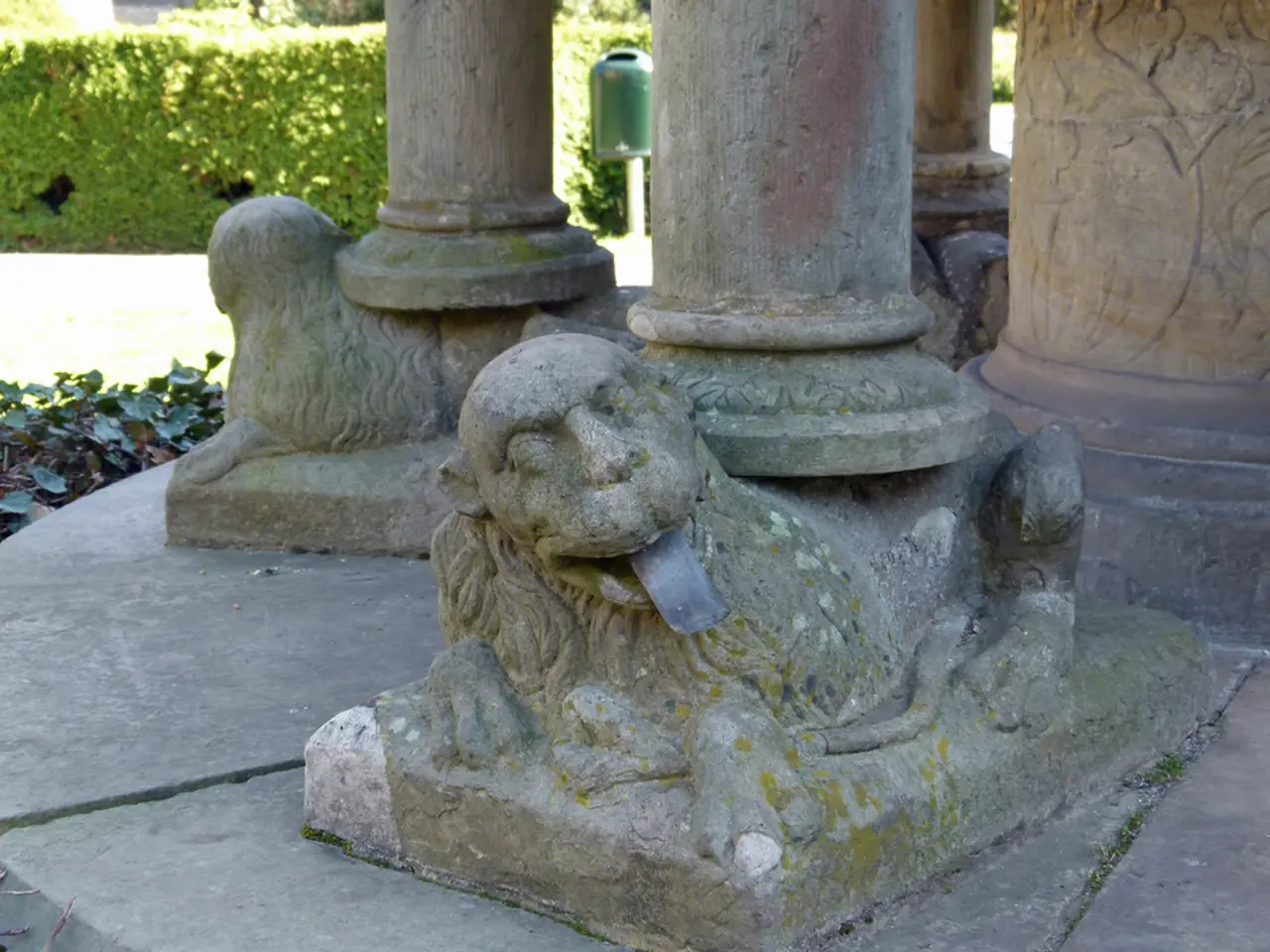Unexpected arrivals at the year-round zoological park
In a significant milestone for global nature conservation, a critically endangered Persian Leopard cub was born at the All-Weather Zoo Münster on July 25th, 2025. The four-year-old leopard, named "Nahla", became a mother for the first time through artificial insemination (AI), a method that plays a crucial role in breeding programs for endangered species like the Persian leopard.
The Persian Leopard, classified as critically endangered by the World Conservation Union (IUCN), is primarily found in Iran and a few regions of the Caucasus. With a dwindling population, the birth of each new cub is a significant step towards ensuring the species' future.
Artificial insemination is a vital tool in such breeding programs. It enables breeding with individuals that may be geographically distant or otherwise unable to mate naturally, increasing genetic diversity. Moreover, it helps boost population numbers in controlled environments, which can support reintroduction or bolster wild populations. Each new cub born through AI represents a potential genetic reservoir and continuation of the species in captivity, a key step in conservation plans.
Nahla, one of fewer than 1000 Persian Leopards worldwide, was artificially inseminated about four months ago. The sperm for the procedure came from a male that was part of a Russian reintroduction project and is available through the European breeding program. The insemination was performed under general anesthesia using a gentle method.
The birth of the cub is a significant achievement, not just for the All-Weather Zoo, but for the conservation of the Persian Leopard. Aurel Heidelberg, consultant for the Ökoregion Caucasus at WWF Germany, emphasizes the importance of international conservation breeding programs in global nature conservation. The All-Weather Zoo Münster receives support in its efforts to preserve the Persian Leopard from WWF Germany.
The rare Persian Leopard cub's first veterinary examination, including the first vaccination and deworming, is planned for about the eighth week of life. The rear area of the leopard enclosure remains closed to visitors to give Nahla and her cub as much peace as possible.
While concrete data on the All-Weather Zoo's AI success rate and cub births for Persian leopards is unavailable, the method overall is known to be a significant conservation strategy that aids the species’ survival and genetic health. The birth of a cub through AI at such facilities is an important milestone toward ensuring the Persian leopard’s future.
In other news, the city of Münster successfully reviewed summer festival security measures, conducted many rescue operations, and had few evictions. The city continues to prioritise the safety and well-being of its residents.
This marks a double celebration for the city of Münster, with both the successful conservation of a critically endangered species and the smooth running of summer festivities. The birth of Nahla's cub serves as a reminder of the importance of conservation efforts and the role zoos play in preserving endangered species for future generations.
The artificial insemination process, utilized in breeding programs for endangered species like the Persian leopard, can boost population numbers in controlled environments, supporting reintroduction or bolstering wild populations. The recent birth of a rare Persian Leopard cub at the All-Weather Zoo Münster through AI signifies a victory in the health-and-wellness and fitness-and-exercise pursuit of preserving the species, which directly links to global nature conservation efforts.




